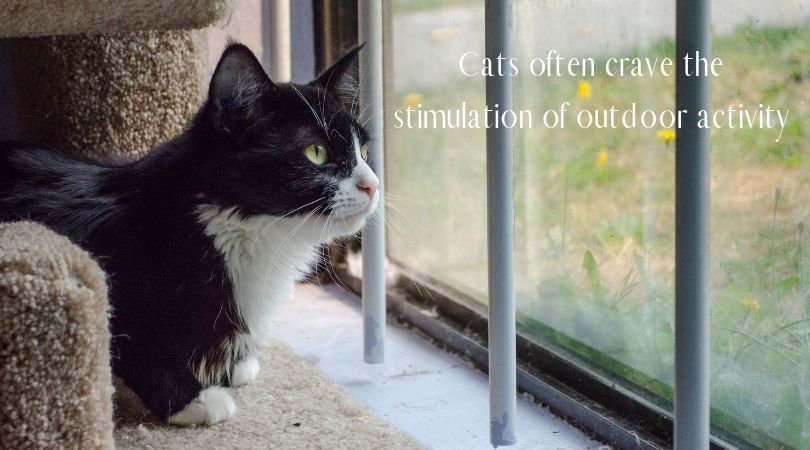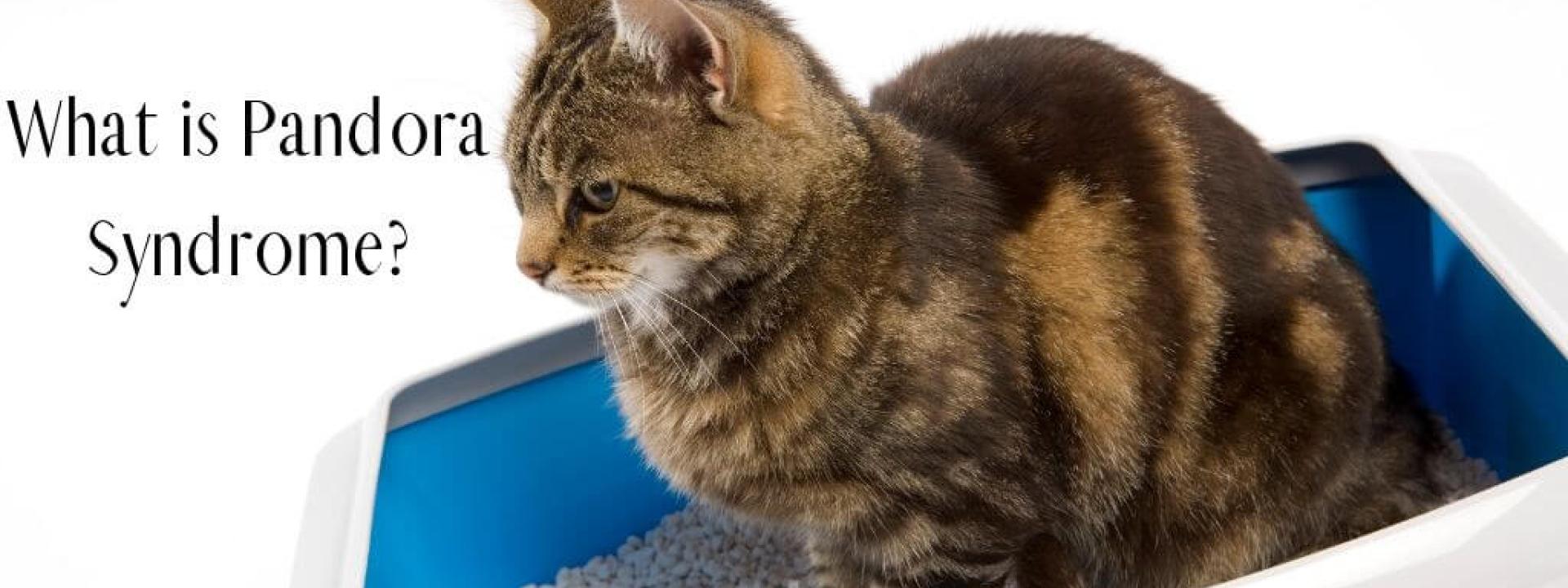Kitty urinary problems are often difficult to diagnose. They can even be difficult for you as the cat owner to recognize unless kitty chooses a location away from the litter box to urinate. Cats can also have blood in the urine and painful urination.
For years, these feline urinary problems have been labeled FLUTD (Feline Lower Urinary Tract Disease), or FIC (Feline Idiopathic Cystitis). They can be caused by a bladder infection, though the causes are often unknown, which makes it difficult to treat the source of the infection.
What Research Reveals
While some cats respond well to antibiotics and the infection clears right up, others don’t. It’s perplexed the veterinarian community for years.
However, a 2011 study from Ohio University offers a new term for such cat urinary tract problems: “Pandora Syndrome.” The study was conducted on 32 cats over a period of three years by Dr. Tony Buffington, who is a professor at the university and lead on this research.
In studying clinical research of the past two decades, veterinarians like Dr. Buffington discovered urinary problems in cats occur due to “complex interactions between the bladder, nervous system, adrenal glands, husbandry practices, and the environment in which the cat lives.” (Source)
Therefore, “Pandora Syndrome” is something of a catch-all term applied to cats who have frequent urinary problems. Dr. Buffington’s research relates these urinary problems to stress in the environment.
What Stresses Cats?
There are many reasons cats can feel stressed. There are the usual suspects, such as a recent move, home remodeling, or a family addition.
But there are other reasons, too. Let’s take indoor living. You already know cats are born hunters. Many cats love nothing more than to roam outside and catch a mouse or two, then come inside when they’re ready for petting, pampering, and dinner.

Yet, many people keep their cats inside all the time. In fact, many veterinarians recommend keeping kitties inside because it reduces a cat’s exposure to potential diseases. Staying inside also protects cats from attack by another animal or being hit by a car.
It sounds like a safe approach.
However, every cat is different, and some of them may not feel happy without stimulation comparable to access to the outdoors. Besides that, cats need their space. If you have a multi-cat household, and one of them craves alone time, then restricted space can worsen their sense of confinement.
Environmental enrichment and personalized social time with you are vital to the mental well-being of your cat.
Typical Symptoms of Highly-Sensitive Cats
Yes, some cats can be highly sensitive. Besides suffering frequent urinary problems, they tend to over-groom, and they may have vomiting, have diarrhea, or act afraid. They often want to be left alone. In some cases, they have other organ problems, too.
In other words, they’re exhibiting a range of clinical signals that indicate something is wrong and they need medical attention. By paying attention to behavior changes, you can relay important information to your veterinarian.
Why is it Called Pandora Syndrome?
Remember the Greek myth of Pandora's box? In case you don’t, it’s the one where Pandora is unable to resist opening a beautiful box, and when she does, she releases demons into the world.
Pandora Syndrome has so many unknown “reasons why” that they all get lumped together. Decades of medical research shows that many feline bladder problems impact the adrenal glands and the nervous system. And now, thanks to Dr. Buffington’s research, we realize that stress plays a role, too.
Treatment and Prevention
So what do you do for a stressed-out cat? Do you even know if your cat is stressed?
According to an article in Animal Wellness magazine:
“We have found that MEMO — Multimodal Environmental Modification — results in a reliable reduction of all clinical signs, and improvement in the cat’s health and welfare,” says Dr. Buffington. “I see MEMO as essential preventive care for healthy cats, and as essential adjunctive care for cats with chronic health problems.” By providing an enriched environment, interactive play sessions, and simply spending more time with affected cats, the frequency of the stress response activation will be reduced, giving the affected organs a chance to heal. “When this happens, the cats recover,” says Dr. Buffington. “Whether their stress response systems return to ‘normal’ remains to be seen.”
As you can see, there’s still much to learn about Pandora Syndrome, but if your cat shows any symptoms of unusual behavior, please make an appointment with your veterinarian before it gets worse. Most health issues can be treated when caught early, so reach out as soon as you can!



